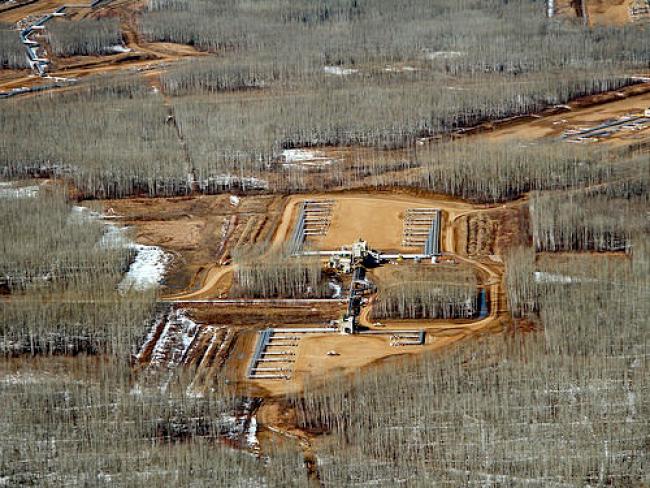Articles Menu

Aug. 7, 2022
Canada’s biggest fossil companies are lining up to dismiss the federal government’s new emissions cap for their sector as “very aggressive” and “almost unrealistic”, even as Environment Minister Steven Guilbeault hastens to offer them flexibility and an extended deadline to hit the long-awaited target.
Guilbeault’s 29-page discussion paper on the emissions cap, released in mid-July, was consistently deferential to the fossil industry’s present-day footprint in the Canadian economy, casting emission reductions as the way to keep the industry in operation and suggesting no path to scale back oil and gas production.
But evidently not deferential enough. With public consultations under way until September 30, Canadian fossils wasted little time before pushing back on the plan.
“It is very aggressive and stretches the capability of what is technically and economically feasible,” Imperial Oil CEO Brad Corson told analysts late last month, adding that the plan amounts to overreach by Ottawa. That was after his company reported C$2.41 billion in profits for the second quarter of the year, six times more than the $366 million it took in over the same period in 2021.
“It’s ambitious at 30%,” said MEG Energy CEO Derek Evans. “I don’t know how we get to 42%. I think that personally, in my humble opinion, is almost unrealistic.”
“In our view, this cap is unnecessary and overly ambitious in light of our stated preference for government and industry to continue to work together… to achieve an already announced emissions reduction target,” Tim McKay, president of Canadian Natural Resources Ltd. (CNRL), declared last week. CNRL’s second-quarter profit more than doubled, from $1.6 to $3.5 billion, over the last year, The Canadian Press says.
“As presented, both emissions cap options have the potential to limit oil and natural gas production in Canada by adding regulatory burden and eliminating options for economy-wide cooperation on emissions reductions,” added Lisa Baiton, president and CEO of the Canadian Association of Petroleum Producers, in a statement to CP.
The discussion paper noted that the fossil sector is the country’s biggest carbon polluter, responsible for 27% of total emissions. It laid out two options for reducing those emissions by 31% from 2005 levels, or 42% from the industry’s 2019 output, by 2030: a cap-and-trade system that would set regulated limits on the sector’s emissions, or a new carbon pricing system for heavy emitters.
It noted that oil and gas emissions increased 5% between 2005 and 2020, a period in which fossil production grew 26%, driven by nearly a tripling in tar sands/oil sands production and more than doubling of emissions, from 35 to 81 million tonnes. Despite the drop in emissions per barrel produced, “the GHG emission intensity of Canadian oil production is among the highest in the world, driven by combustion-intensive oil sands production processes,” the paper stated.
Within days of its release, Guilbeault was emphasizing language in the discussion paper that offered the industry flexibility to meet its targets, beyond the 2030 deadline.
“They would still have to meet the 2030 targets, but we would allow, for a short amount of time, in a limited way, the use of flexibility mechanisms,” Guilbeault told CBC July 25. “Basically, these companies would be able to use carbon credits to meet some of the regulatory emissions reductions requirements. But again, it would be for a short amount of time, for a short period, two years, and it would be in limited quantity.”
The minister’s senior communications advisor, Bruce Cheadle, said that was just a matter of “trying to show flexibility and good will.”
The next round of good will fell into place late last week, after United Nations Secretary-General António Guterres called out the global industry’s “scandalous” profits and “grotesque greed”. Finance Canada told CBC that Ottawa has no plans to introduce a new windfall profit tax on Canadian fossils, declaring in an emailed statement that “we have been, and remain, committed to making sure everyone pays their fair share of tax”.
NDP finance critic Daniel Blaikie responded that there’s “absolutely” a place for the federal government to tax “excess profit” at a time when “people are really under the gun when it comes to being able to afford” rent, food and gas, CBC writes.
“We saw Conservatives in the U.K. do this, for Pete’s sake,” Blaikie said, after the government of then-UK prime minister Boris Johnson introduced a 25% windfall profits tax on North Sea fossil production—albeit with an incentive bundled in for new oil and gas exploration.
On The Hill Times this morning, veteran journalist Susan Riley asks the question [sub req’d] lurking behind the whole discussion: “Is there anyone in Canada—anyone?—who believes that Justin Trudeau’s government is serious about tackling climate change?” she writes. “It seems unlikely, given the ongoing failure to contain emissions from Alberta’s oil patch, the single largest domestic source of the greenhouse gases that are damaging our planet.”
Rather than continuing the “ritual humiliation of pretending to ‘work with industry’ to lower emissions,” the publication adds in a story subhead, “the feds should shift attention and resources massively to electrifying transportation, home heating, and energy production in concert with willing provinces.”
[Top photo: jasonwoodhead23/flickr]